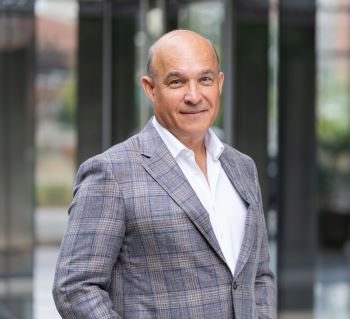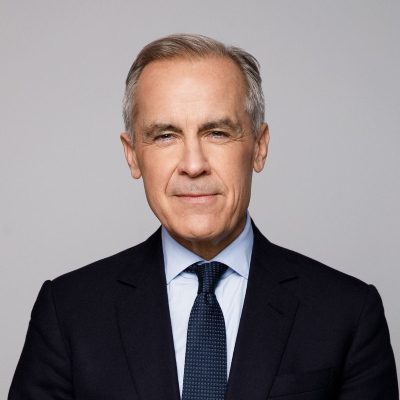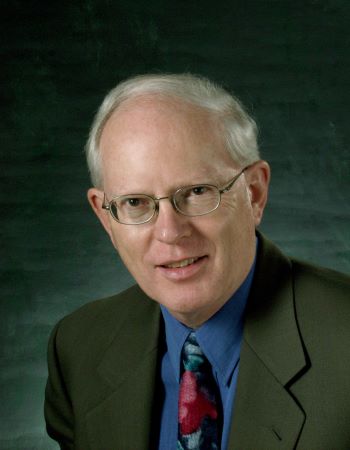It is the Prairies’ century to grow an innovation-driven economy and lead a productivity turnaround for Canada
This is the “century for the Prairies” to grow an innovation-driven, value-added economy, and Alberta is well-positioned to take the lead, says prominent entrepreneur, investor and philanthropist Jim Balsillie.
“It’s the era for the Prairies and it’s your century,” he said at Alberta Innovates’ Inventures conference in Calgary.
 Given the shifting geopolitical environment, U.S. tariffs and economic uncertainty, the Prairie provinces “have a moment to re-conceptualize Canada,” said Balsillie (photo at right), co-founder and chair of the Council of Canadian Innovators and the Digital Governance Council, and former co-CEO of Research in Motion (BlackBerry).
Given the shifting geopolitical environment, U.S. tariffs and economic uncertainty, the Prairie provinces “have a moment to re-conceptualize Canada,” said Balsillie (photo at right), co-founder and chair of the Council of Canadian Innovators and the Digital Governance Council, and former co-CEO of Research in Motion (BlackBerry).
“I think you have all the ingredients,” including energy, agriculture, critical minerals and “catalytic” political leadership, he said during a “fireside chat” with Alberta Premier Danielle Smith.
Balsillie is an advisor to Smith, whom he praised effusively during their chat, and is also advising Manitoba Premier Wab Kinew as the newly named co-chair of the province’s Innovation and Productivity Task Force.
Alberta didn’t cause the current problems that include Canada’s decline in productivity and poor economic and innovation performance, which have been “so mismanaged for decades,” Balsillie told Smith. But Alberta and the other Prairie provinces have the ability, capacity and political leadership to turn things around, he said.
“I’m not worried about Trump with the boot to our neck. I just want us to take the boot off our own neck,” he said.
The digital transformation during the past 40 years created a new global economy in which wealth, power and security are rooted in the ownership of intellectual property and the control of AI and data, Balsillie said. Such intangible asses now comprise more than 90 percent of the S&P 500’s $47.55 trillion market value.
So the key for Alberta in being a leader in this knowledge- and data-driven economy is to focus on accumulating and using valuable IP and controlling AI and data assets, “ensuring the benefits are captured here at home,” he said.
Alberta can lead a reinvigorated Canada by combining its industrial strengths like energy with focused innovation policy and digital infrastructure, Balsillie said. “Every business is a tech business. Technology is not a sector – it permeates every part of the economy.”
Balsillie pointed out that more than 1.4 million AI patents have now been granted worldwide. But Canada doesn’t appear in the top 100, even though it was Canadian publicly funded research that created the foundational technology for AI.
Exxon Mobil owns more than 36,000 patents while Halliburton ranks seventh globally in AI patent filings, he said.
Owning, protecting and having the freedom to use IP has direct impact on wealth and power at the individual company level, Balsillie said.
However, Canada missed the shift to a knowledge-based and data-driven economy, which has shortchanged the country’s economy by hundreds of billions of dollars annually, he said.
For Alberta, now is the time to expand beyond being an oil and natural gas producer to owning and capitalizing on the IP and data generated by the energy and other sectors, and by comprehensively supporting Alberta innovators, Balsillie said.
The highest productivity sector in GDP per capita after the oil and gas industry is refining, he noted.
Canada used to produce 1.7 billion barrels per day of oil and refine the same amount, he added. Now Canada produces more than 5 billion barrels of oil – much of it shipped to the U.S. for refining – while still refining only about 1.7 billion barrels per day at home.
“You [Alberta] have the opportunity to create the value-added instruments, whatever they may be,” by using AI-driven computer power to find value-added solutions, he told Smith.
Alberta is adding tech hub to its energy strengths
 Premier Smith (photo at right) used the fireside chat to tout Alberta’s growing importance as a tech hub and underscore that producing oil and natural gas will be a core and long-term part of the province’s future economy and prosperity.
Premier Smith (photo at right) used the fireside chat to tout Alberta’s growing importance as a tech hub and underscore that producing oil and natural gas will be a core and long-term part of the province’s future economy and prosperity.
Calgary has the fastest-growing tech sector in North America, growing by 78 percent in just a few years, she noted. In StartupBlink’s 2025 Global Startup Ecosystem Index of worldwide startup ecosystem rankings, Calgary rose 15 places globally to 92nd place, with a growth rate of 29.6 percent which nearly rivals Toronto.
Smith also pointed to a report by the Canadian Venture Capital and Private Equity Association, which said Alberta attracted the third-highest venture capital investment – $140 million – in the first quarter of 2025, behind only Ontario and Quebec.
“Our province has become a strategic hub for international business growth and innovation,” Smith said.
The Premier pointed out that the Alberta government has invested $1.8 billion in carbon capture, utilization and storage projects. “We are indeed Canada’s energy province.”
“Alberta is 100-per-cent committed to technology and innovation,” said Smith, who noted that it was provincial government-funded innovation that led to the creation of Alberta’s oilsands industry.
Alberta also has a strategy to attract AI data centres to the province, has met with 16 major AI data centre operators over the last few months, and now has a lineup of proposed new data centres before the Alberta Energy Regulator, she said.
The best answer to decarbonizing power is natural gas, perhaps backed up by energy storage batteries, Smith said.
Yet until Prime Minister Mark Carney ended the consumer price on carbon in March, “we had a punitive carbon tax on natural gas in Alberta,” Smith said. “If you’re going to put a punitive tax on something that’s going to be a base fuel in order to drive AI data centres, it’s going to drive that investment elsewhere.”
“We need to understand that the [energy] transition we’re going through is a transition away from emissions,” she said. “It’s not a transition away from some of these base fuels.”
“For us to be able to achieve what we want in technology, having reliable power is essential to that,” she added.
She pointed to Dow Chemical’s proposed $11.-5 billion Path2Zero project, envisioned as a net-zero emissions petrochemicals plant in Fort Saskatchewan near Edmonton, that would decarbonize the production of plastics. Dow has delayed the plant, citing economic uncertainty, a lower-for-longer earnings outlook and weak demand for petrochemical products.
There are 6,000 different products that come from a barrel of oil, Smith said. They include oilsands bitumen used to make asphalt to build roads.
“It makes no sense to talk about phasing out bitumen, any more than it does talking about phasing out steel or phasing out cement,” she said. “We have to find a way to use the product that has less and less impact on the environment.”
Smith, who had just returned from a Western and Northern premiers’ meeting in Yellowknife, said the premiers agreed on the need to develop a corridor from Prince Rupert, B.C. to Churchill on the Hudson Bay in northern Manitoba, to build new pipelines, electricity transmission, railways and roads.
When it comes to critical minerals, the approach the premiers are considering is to first identify all the ports that would ship the minerals and then work backward to identify the various types of infrastructure required, she said.
The premiers also agreed that their provinces need to win the race on manufacturing intelligence, using data to improve manufacturing operations, and to collaborate on adopting and using AI, including demonstrating government use cases for AI, Smith said.
Canadian governments fund a lot of innovation but then just give up on retaining and benefiting from the intellectual property, she noted.
That’s because there’s a lack of financial support for mid-tier companies so they end up selling or relocating, often to the U.S., Smith said.
Canada urged to get going on open banking and create stablecoins
Balsillie said Canada needs to get open banking going and also should create stablecoins (a type of cryptocurrency designed to maintain a stable value) – something he urged Smith to push Ottawa on.
“The U.S. is really pushing stablecoins,” with Trump embracing cryptocurrencies and advancing stablecoin legislation, he said.
Major U.S. banks are exploring the creation of a consortium-backed stablecoin, according to a report from The Wall Street Journal. The initiative would be accompanied by proposed legislation that would set a clear regulatory framework for stablecoin issuance by both banks and non-bank entities.
Trump will continue to push for stablecoins and Canada runs the risk of its fiat currency being bypassed and the country being subject to tariffs if it doesn’t allow cryptocurrencies to be used in trade relationships, Balsillie warned.
Smith responded that Albertans are wary of the federal government controlling currency after Ottawa turned off some people’s bank accounts during the “Freedom Convoy” protests and blockades in 2022.
However, it’s possible Alberta could acknowledge other types of currency, such as stablecoins and bitcoins (the first decentralized digital currency, or cryptocurrency), as legal tender in the province, she added.
She indicated her willingness to name a Canadian cryptocurrency expert to the Alberta Securities Commission to advise the province on its approach to decentralized currencies.
Alberta’s Heritage Savings Trust Fund, which the Alberta government is turning into a Sovereign Wealth Fund, could perhaps hold a portion of its holdings in stablecoins, she suggested.
As for Balsillie’s suggestion to do more oil refining at home, Smith said Alberta has a $188-billion bilateral trade relationship with the U.S. that’s anchored in an integrated market where Alberta produces oil and then ships it to the U.S. for refining – benefiting both countries.
However, she acknowledged that the U.S. has “just swallowed so much of our great innovation.”
She pointed to the example of Carbon Engineering, a direct air capture company whose creation and growth were supported by public funding, only to be sold for US$1.1 billion in 2023 to U.S. energy giant Occidental, whose subsidiary 1PointFive is building a commercial-scale direct air capture facility in Texas.
David Keith, a former University of Calgary researcher (now at the University of Chicago) who founded Carbon Engineering, has said the company searched unsuccessfully for a Canadian buyer at the time.
Keith, a Canadian whose home is in Canmore, Alberta, said even when Carbon Engineering was doing its pioneering R&D direct air capture work in Calgary, the company decided to relocate to Squamish, B.C. British Columbia was “super-supportive,” while “Alberta was not supportive, neither government nor industry,” he said.
Smith said it may be time to build into public R&D funding provisions that would include some equity and other conditions to help protect the public’s investment. She quipped that she was looking forward to working with Balsillie to set up “IP Alberta.”
Balsillie received applause from the Inventures audience when he said Canada “should fall back in love” with its technology founders and innovative companies, and focus on innovation in building sovereign strength.
R$
Events For Leaders in
Science, Tech, Innovation, and Policy
Discuss and learn from those in the know at our virtual and in-person events.
See Upcoming Events
You have 0 free articles remaining.
Don't miss out - start your free trial today.
Start your FREE trial Already a member? Log in
By using this website, you agree to our use of cookies. We use cookies to provide you with a great experience and to help our website run effectively in accordance with our Privacy Policy and Terms of Service.





